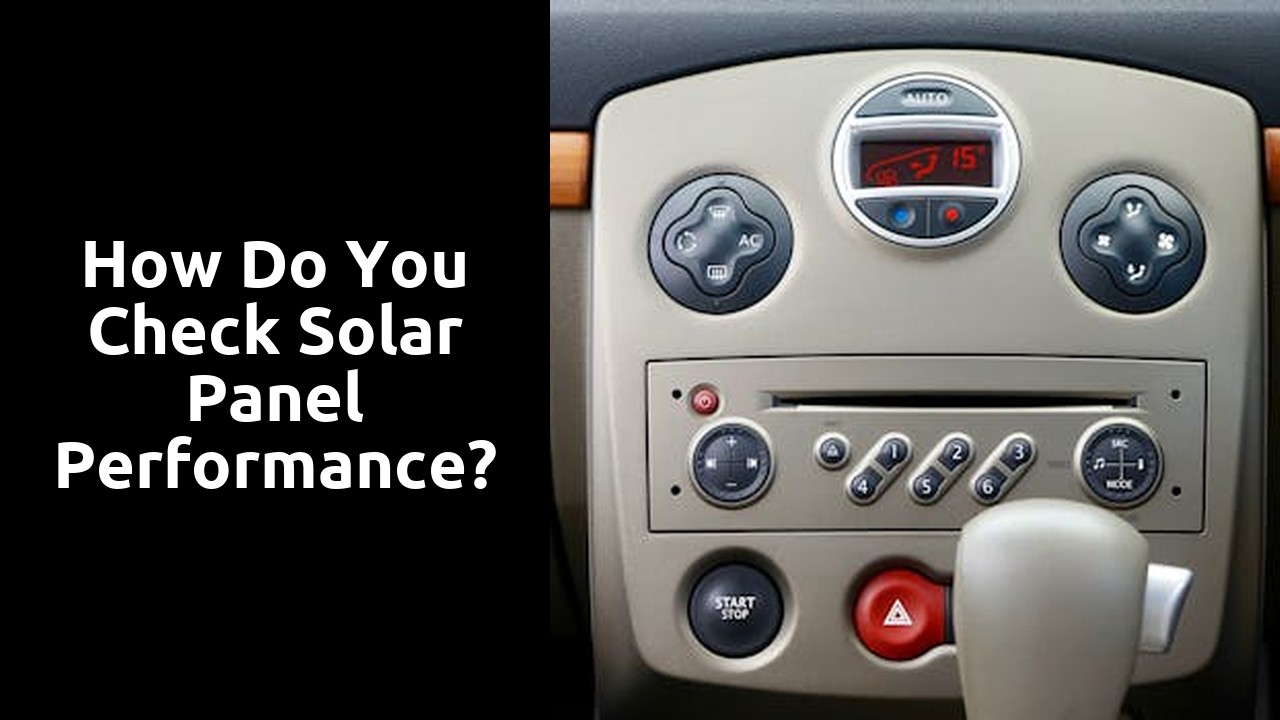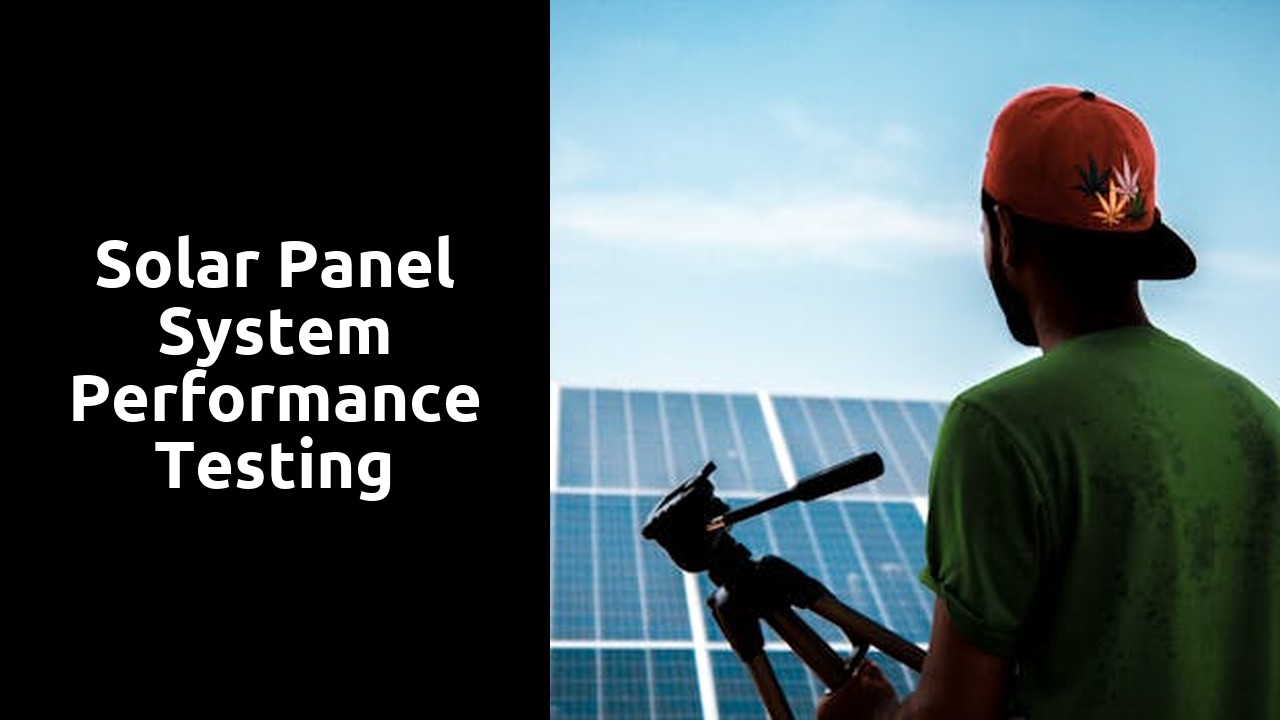
Assessing Solar Panel Maintenance
When it comes to maintaining solar panels, conducting regular inspections is essential for ensuring optimal performance. Solar panel system performance testing should be carried out periodically to identify any potential issues such as dirt accumulation, shading, or damaged components. By assessing the maintenance needs of solar panels, homeowners can address any problems early on and prevent them from negatively impacting the overall efficiency of the system.
Regular solar panel inspections play a vital role in prolonging the lifespan of the solar panels and maximising energy production. Through systematic checks and routine maintenance, it is possible to maintain the performance of the solar panel system at its peak. By incorporating a proactive approach to assessing solar panel maintenance, homeowners can reap the benefits of a reliable and efficient renewable energy source.
Importance of regular solar panel inspections
Regular solar panel inspections are essential to ensure the optimal performance of your solar panel system. By conducting routine checks, you can identify any issues that may be affecting the efficiency of your panels. This can include build-up of dirt or debris on the panels, loose connections, or potential damage to the panels themselves. By addressing these issues early on, you can prevent them from escalating and impacting the overall performance of your system.
In addition to identifying and addressing specific issues, regular solar panel inspections also help to maintain the longevity of your system. By ensuring that your panels are operating at their best, you can extend the lifespan of your investment and maximise the amount of energy they are able to generate. This not only helps to protect your initial investment in the system, but also ensures that you continue to benefit from lower energy bills and a reduced environmental impact over time. Regular inspections play a crucial role in keeping your Solar Panel System Performance Testing at its peak.
Troubleshooting Solar Panel Issues
When facing issues with solar panel performance, it is essential to conduct thorough troubleshooting to identify the root cause. One common problem impacting solar panel efficiency is shading from nearby objects such as trees, buildings, or even debris. Shading significantly reduces the amount of sunlight reaching the panels, thereby decreasing their productivity. To address this issue, it is advisable to trim trees or remove objects that cast shadows on the panels, allowing them to receive maximum sunlight exposure.
Another factor that can impact solar panel system performance is soiling or dirt accumulation on the surface of the panels. Dust, bird droppings, and other forms of debris can block sunlight from reaching the photovoltaic cells, leading to decreased efficiency. Regular cleaning and maintenance of solar panels are crucial to ensure optimal performance levels. By incorporating a schedule for cleaning and monitoring the panels, you can maintain their efficiency and prolong their lifespan. Additionally, consider integrating Solar Panel System Performance Testing to accurately assess the functionality and output of your solar panel system.
Common problems impacting solar panel performance
Common problems can greatly impact the overall performance of solar panel systems. One issue commonly seen is the accumulation of dirt and debris on the panels, which can hinder the absorption of sunlight and reduce energy production. Regular cleaning and maintenance are essential to ensure optimal performance of the solar panels. Additionally, shading caused by nearby trees, buildings, or other obstructions can also diminish the output of a solar panel system. Conducting a thorough inspection of the surrounding area to identify potential shading issues is crucial in maintaining efficient operation of the system.
Another common problem affecting solar panel system performance is the presence of faulty or damaged components. Inverters, wiring, and connectors are prone to wear and tear over time, leading to drops in efficiency and output. Regular inspections and testing of these components are necessary to detect any issues early on and prevent further damage to the system. Monitoring the performance of the solar panel system through regular Solar Panel System Performance Testing can help identify any anomalies and address them promptly to ensure maximum energy generation.
Calculating Solar Panel ROI
When it comes to calculating the Return on Investment (ROI) for solar panels, there are several factors to consider. One of the key elements in determining the ROI is the initial cost of the solar panel system. This includes the cost of purchasing and installing the panels, inverters, mounting hardware, and any other necessary equipment. Additionally, ongoing maintenance costs and potential repair expenses should also be taken into account when calculating the ROI of solar panels.
Another important factor to consider when calculating the ROI of solar panels is the amount of energy generated by the system. This can be influenced by various factors such as the size and efficiency of the panels, as well as the location and orientation of the solar panel system. Monitoring the Solar Panel System Performance Testing regularly is crucial in order to accurately assess the energy production and overall efficiency of the system. By considering both the costs and energy output of the solar panel system, one can determine the ROI and evaluate the long-term financial benefits of investing in solar energy.
Factors influencing return on investment for solar panels
Factors influencing return on investment for solar panels include initial installation costs, ongoing maintenance expenses, government rebates and incentives, electricity prices, and the efficiency of the solar panel system. The cost of installing solar panels has decreased significantly in recent years, making them more accessible to a wider range of consumers. Lower installation costs can positively impact the return on investment by reducing the payback period for the system.
Government rebates and incentives can also play a crucial role in enhancing the return on investment for solar panels. By providing financial incentives for installing solar panels, governments encourage more consumers to invest in renewable energy. Additionally, electricity prices will influence the payback period and overall return on investment for solar panels. The higher the cost of electricity, the more savings can be realised by generating your own electricity through a solar panel system. Regular Solar Panel System Performance Testing can help ensure that the system is operating at its optimal performance level, maximising the return on investment over the long term.
FAQS
How often should I assess my solar panel maintenance?
It is recommended to conduct regular solar panel maintenance checks at least once a year to ensure optimal performance.
Why is regular solar panel inspection important?
Regular inspections help in identifying any issues early on, which can prevent potential damage and ensure maximum energy production from your solar panels.
What are some common problems that can impact solar panel performance?
Common issues that can affect solar panel performance include shading from nearby objects, dirt or debris buildup on the panels, and electrical wiring faults.
How can I troubleshoot issues with my solar panels?
You can troubleshoot solar panel issues by checking for shading, cleaning the panels, inspecting the wiring connections, and monitoring the inverter for any error messages.
How do I calculate the return on investment (ROI) for my solar panels?
To calculate the ROI for your solar panels, consider factors such as the initial cost of the system, energy savings generated, any government incentives or rebates, and the expected lifespan of the panels.
What factors influence the return on investment for solar panels?
Factors that can impact the ROI of solar panels include the cost of electricity in your area, the efficiency of the solar panels, the amount of sunlight received, and any maintenance or repair costs over time."""
